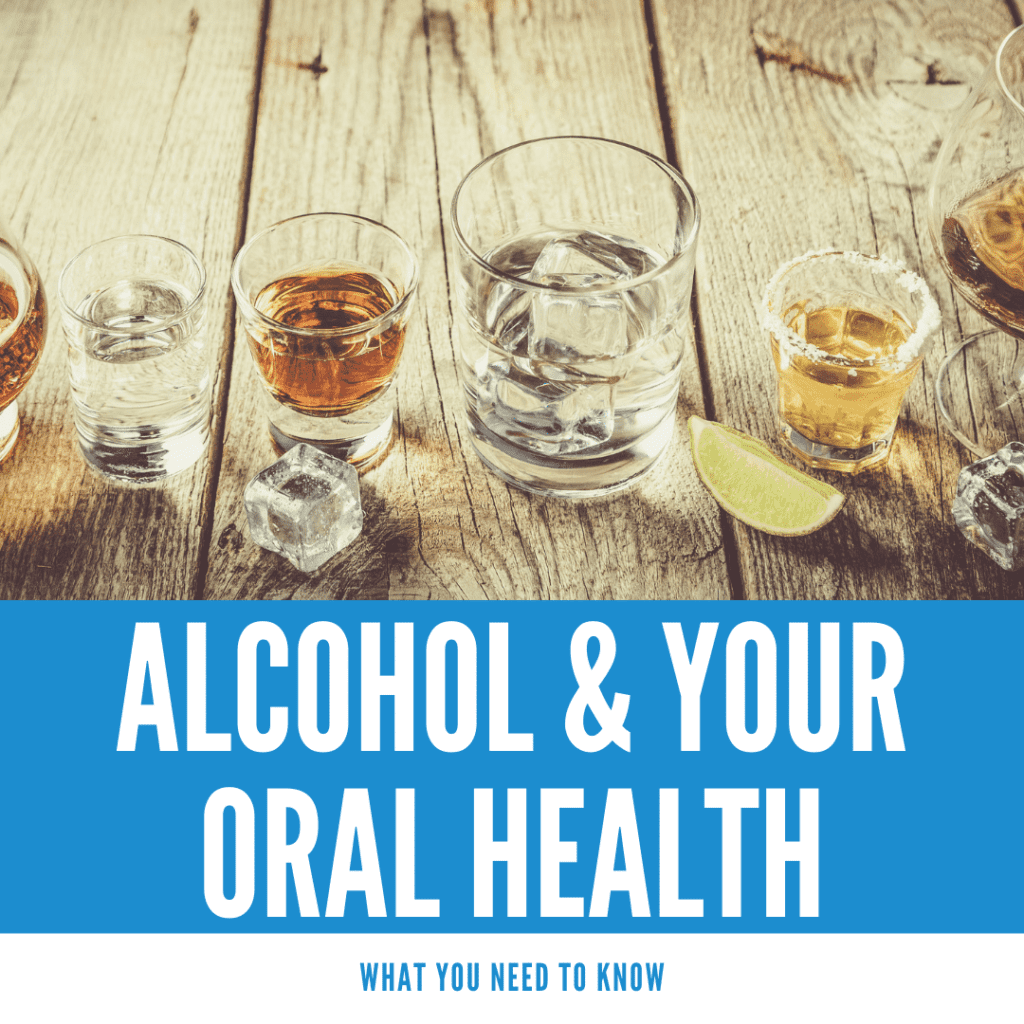Did you know that drinking alcohol can affect your oral health? Chances are, you probably don’t think about your oral health when you drink alcohol. But, it is important to remember that alcohol is one more thing that can affect your teeth and gums. While this does not necessarily mean that you should stop drinking alcohol altogether, there are a few things that you should know. In this blog, we will discuss what you need to know about drinking alcohol and your oral health.
Before looking at exactly how alcohol affects your oral health, it is first important to note that the amount of alcohol consumed can minimize or amplify these effects. While alcohol itself is not generally considered to be healthy, it can generally be consumed in moderation without causing significant problems. According to the Centers for Disease Control and Prevention (CDC), moderate alcohol consumption is defined as one drink per day for women and up to two drinks a day for men. The CDC also defines heavy drinking as more than eight drinks per week for women and more than fifteen drinks per week for men.
When it comes to your oral health, obviously heavy drinkers are at a higher risk of complications than people who only consume moderate amounts of alcohol. In fact, studies show that heavy drinkers are three times more likely to experience permanent tooth loss. Heavy drinkers are also significantly more likely to develop oral cancer since alcohol abuse is the second most common risk factor.
While moderate drinkers may not be affected to the same extent, many dentists note that even moderate alcohol use can have an effect on the teeth and gums. Here are some of the ways that alcohol can affect your oral health:

Increased Risk of Gum Disease
Studies have shown that drinking alcohol can change the oral microbiome, or the types of bacteria found in the mouth. The mouth contains both “good” and “bad” bacteria, however people who drink more than the suggested amount of alcohol tend to have higher amounts of “bad” bacteria and lower amounts of “good” bacteria. This can increase the risk of developing gum disease. It can also cause existing gum disease to become more severe based on the amount of alcohol consumed.
Dehydration & Dry Mouth
Alcohol consumption causes your kidneys to expel more water than normal, which ends up dehydrating your body. In addition to dehydration, alcohol can also decrease your salivary flow. The combination of these two things can cause the mouth to become dry, which impairs the mouth’s ability to clean itself and allows bacteria to thrive. Ultimately, this makes the mouth more susceptible to gum disease and tooth decay. You can decrease the effects of dehydration and dry mouth by also drinking water when consuming alcohol.
Weakened Tooth Enamel
Drinking alcohol can also lead to weakened tooth enamel, which makes teeth more susceptible to cavities and other dental problems. This is because alcohol breaks down into sugar, which is the primary food source of oral bacteria. After feeding on the sugars from alcohol, these “bad” bacteria deposit acidic waste that can dissolve the minerals that make up tooth enamel. Oftentimes, sweeter drinks mean more sugar, while drier drinks tend to have less sugar. However, citrus drinks or even adding a slice of citrus to your drink can also wear down your enamel because of the harsh acids.
In Conclusion
While moderate alcohol consumption likely will not have a significant impact on your oral health, it is still important to be aware of the risks. Heavy drinkers are at an increased risk for developing gum disease, tooth decay, and oral cancer. Additionally, alcohol can cause dehydration and dry mouth, both of which make the mouth more susceptible to bacteria and dental problems. Alcohol can also weaken tooth enamel, making teeth more susceptible to cavities and other damage. If you are concerned about your alcohol intake and its impact on your oral health, talk to your dentist for advice.


